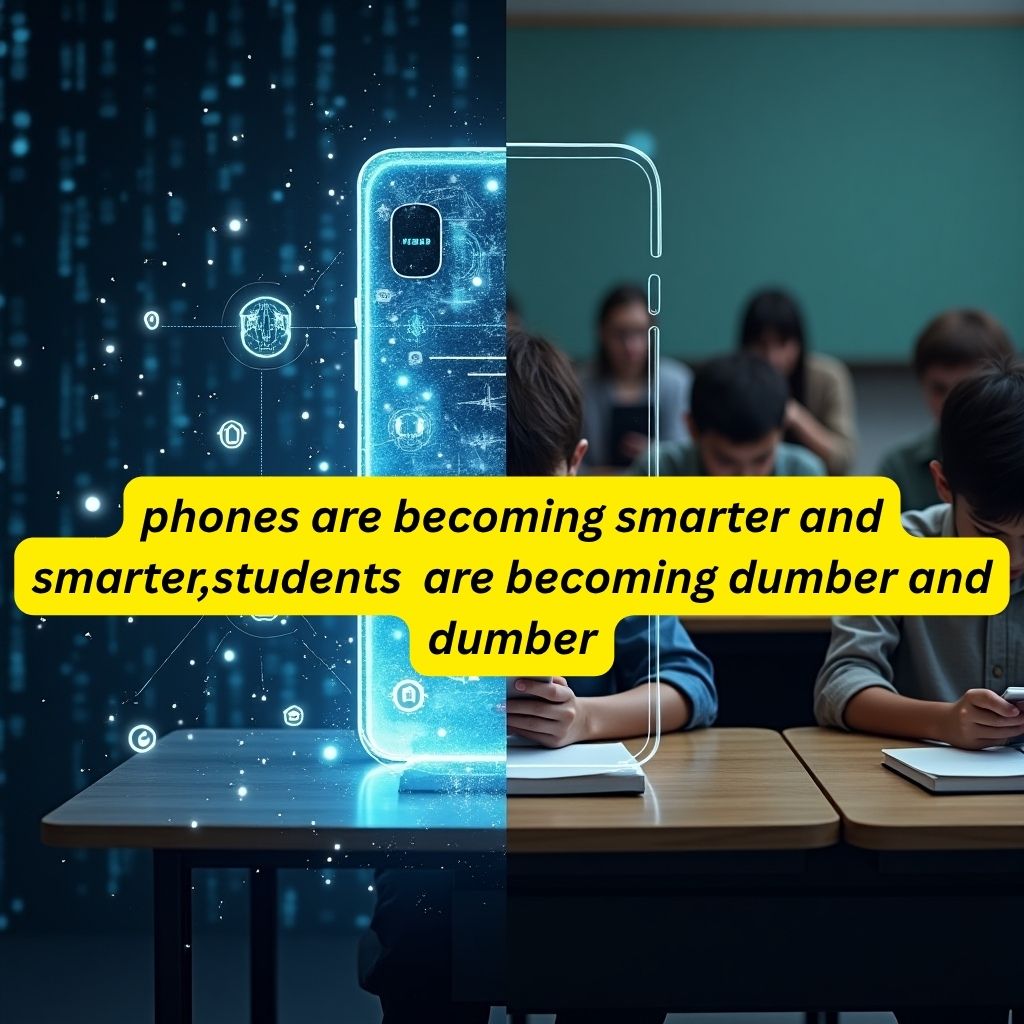
“Phones are becoming smarter and smarter, students getting dumber and dumber” is a powerful reflection of today’s digital age. Smartphones have revolutionized our lives, yet they have also created a paradox where access to infinite information hasn’t translated into greater wisdom or learning among students. Instead of using technology as a tool for growth, many students are trapped in the endless scroll of entertainment, social media, and instant gratification.
This phenomenon raises critical questions about the impact of technology on attention span, critical thinking, and creativity. Studies show that excessive smartphone use can lead to reduced focus, poor memory retention, and even digital addiction. As artificial intelligence and smart devices evolve, they take over tasks that once required human effort, subtly encouraging mental laziness. Students rely on Google for answers instead of developing problem-solving skills or deep analytical thinking.
Moreover, the culture of notifications and dopamine-driven apps has replaced curiosity and discipline with distraction. Education systems must now address not just the curriculum but also digital literacy—teaching students how to use smartphones responsibly as tools for learning, rather than letting them dominate their time and attention.
The irony is clear: as phones become “smarter,” they are designed to anticipate human needs, but students risk becoming passive consumers instead of active learners. The solution lies in creating a balance—leveraging technology for research, innovation, and collaboration while fostering habits of reading, critical reasoning, and self-discipline.
This quote is a wake-up call for educators, parents, and students alike to rethink their relationship with technology before the smart devices outsmart human potential